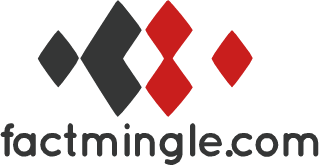Managing Debt: Tips for a Debt-Free Future
Debt can be a significant burden for many individuals and families, causing stress and financial strain. However, with the right approach and a few simple tips, it is possible to manage debt and work towards a debt-free future. In this article, we will explore some valuable tips for managing debt and taking steps towards financial freedom.
Assess Your Current Financial Situation
Before you can begin to tackle your debt, it’s essential to have a clear understanding of your current financial situation. This includes taking stock of your income, expenses, and all outstanding debts. Creating a comprehensive overview of your finances will help you identify areas where you can make improvements and develop a plan for paying off your debts.
Create a Realistic Budget
One of the most effective ways to manage debt is by creating a realistic budget. This involves outlining your monthly income and expenses, including debt repayments. By budgeting effectively, you can ensure that you have enough money to cover your essential expenses while also making regular payments towards your debts.
Consolidate Your Debts
Another useful tip for managing debt is to consider consolidating your debts into a single loan or credit card with a lower interest rate. This can make it easier to keep track of your repayments and potentially reduce the amount of interest you pay over time.
Explore Debt Relief Options
If you are struggling to keep up with your debt repayments, it may be worth exploring debt relief options such as debt settlement or consumer credit counseling. These programs can help you negotiate with creditors and develop a manageable repayment plan based on your financial situation.
Seek Professional Financial Advice
For individuals facing significant debt challenges, seeking professional financial advice can be incredibly beneficial. A financial advisor can provide personalized guidance and help you develop a plan to get out of debt and build a secure financial future.
Stay Committed to Your Plan
Once you have developed a debt management plan, it’s crucial to stay committed and disciplined in following it through. This may require making sacrifices and lifestyle changes, but the long-term benefits of being debt-free will make it all worthwhile.
Conclusion
Managing debt can be a challenging and intimidating task, but with the right approach and a clear plan, it is possible to work towards a debt-free future. By assessing your financial situation, creating a realistic budget, and exploring debt relief options, you can take steps towards regaining control of your finances. It’s important to stay committed to your plan and seek professional advice if needed. With perseverance and determination, a debt-free future is within reach.
FAQs
1. How can I create a realistic budget to manage my debt?
Creating a realistic budget involves outlining your monthly income and expenses, including debt repayments. It’s important to prioritize essential expenses and allocate a portion of your income towards debt repayment.
2. What are the benefits of consolidating my debts?
Consolidating debts can make it easier to manage repayments and potentially reduce the amount of interest paid over time. It can also simplify your finances by combining multiple debts into a single loan or credit card.
3. What is debt settlement, and how can it help with managing debt?
Debt settlement involves negotiating with creditors to settle your debts for less than the full amount owed. This can be a useful option for individuals facing significant financial hardship and struggling to keep up with their debt repayments.
4. How can I find a reputable financial advisor to help with my debt management plan?
When seeking a financial advisor, it’s essential to research and choose a reputable and experienced professional. You can ask for referrals from friends or family, or seek recommendations from professional associations and organizations.
5. What are some practical strategies for staying committed to my debt management plan?
Staying committed to a debt management plan may require making sacrifices and lifestyle changes. It can be helpful to set specific goals, track your progress, and seek support from family and friends to stay motivated.
6. Are there government programs or resources available to help with debt management?
There are various government programs and resources available to help individuals with debt management, including consumer credit counseling services and debt relief programs. It’s advisable to research and explore available options to find assistance tailored to your specific needs.
7. How long does it typically take to become debt-free?
The timeline for becoming debt-free can vary significantly depending on individual circumstances, including the amount of debt owed and the available resources for repayment. It’s important to remain patient and persistent in following through with your debt management plan.
8. Can I negotiate with creditors on my own, or should I seek professional assistance?
You have the option to negotiate with creditors on your own, but seeking professional assistance from a reputable debt settlement or credit counseling agency can provide valuable expertise and support in navigating the negotiation process.
9. What are the potential consequences of not managing debts effectively?
Failure to manage debts effectively can result in significant financial consequences, including damage to your credit score, accumulation of high-interest charges and fees, and potential legal action from creditors. It’s crucial to take proactive steps to address and manage your debts.
10. How can I maintain financial discipline and avoid accumulating new debts?
To maintain financial discipline and avoid accumulating new debts, it’s essential to stick to your budget, prioritize essential expenses, and resist the temptation of unnecessary or impulsive spending. Developing good financial habits and regularly assessing your financial goals can help you stay on track towards a debt-free future.




